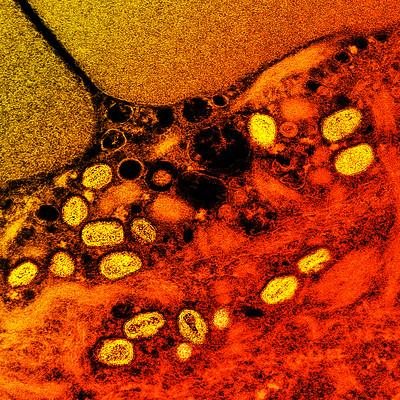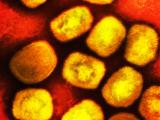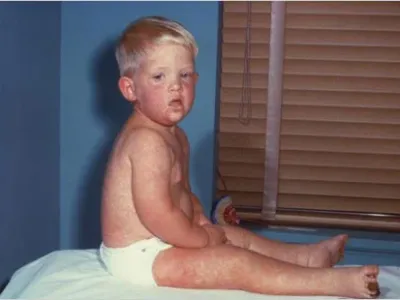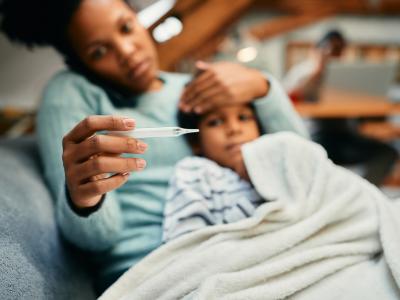About 1 in 15 unvaccinated adults who visited a New York City sexual health clinic for testing had antibodies to mpox despite no history of vaccination or infection during the peak of the city's 2022 outbreak, suggesting that asymptomatic infections contributed to transmission, according to a new report in the Journal of Infectious Diseases.
Researchers from the New York City Department of Health and Mental Hygiene recruited participants during testing visits at two city sexual health clinics. The team evaluated blood samples from a cohort of asymptomatic adults without a history of mpox infection or smallpox/mpox vaccination for the presence of mpox antibodies—an indication of previous infection—in July and August 2022.
Of the 419 participants, 281 (67.1%) were cisgender men, of whom 59.1% reported having sex with men since April 2022. The other participants were 109 cis women and 28 transgender or nonbinary people.
A global outbreak of the primarily sexually transmitted infection began in May 2022, spreading to more than 70 countries and infecting more than 83,000 people, including at least 3,821 in New York City. Over 90% of the cases occurred among men who have sex with men (MSM), the study authors noted.
6.4% overall seroprevalence
In total, 6.4% of participants had mpox antibodies, including 3.7% of cis women, 7.0% of cis men with only cis women partners, and 7.8% of MSM. Seroprevalence (level of antibodies in the group) varied little by race, age-group, HIV status, and number of recent sex partners. No participants who said they had close contact with mpox patients had mpox antibodies.
Our findings from the 2022 NYC outbreak suggest that strategies that rely solely on testing patients with lesions, and subsequent case investigation and contact tracing, may be insufficient to completely curb future mpox outbreaks.
Of participants without recent mpox-like symptoms, 6.3% had antibodies. A total of 19% of participants who had recent rashes, sores, or lesions had mpox antibodies.
Most MSM (117 of 166; 70.5%) said they were very or somewhat concerned about contracting mpox, while 16.2% were a little or not at all concerned, and 13.3% were neutral. Of those with high or moderate concern, 10.3% had mpox antibodies.
When asking about their interest in receiving the mpox vaccine, 71.1% of MSM were very interested, 16.9% were somewhat interested, 9.6% were neutral, and 2.4% had little or no interest. "Our findings from the 2022 NYC outbreak suggest that strategies that rely solely on testing patients with lesions, and subsequent case investigation and contact tracing, may be insufficient to completely curb future mpox outbreaks," the researchers wrote.
They called for surveillance studies to measure the extent to which mild or subclinical infections contribute to mpox spread and public health prevention interventions such as provider outreach, community engagement, and sustained and equitable access to mpox vaccination.





















